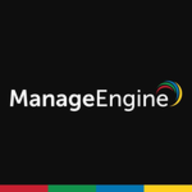



Find out what your peers are saying about Microsoft, ManageEngine, Omnissa and others in Unified Endpoint Management (UEM).
| Product | Market Share (%) |
|---|---|
| Hexnode UEM | 1.0% |
| Microsoft Intune | 32.6% |
| Workspace ONE UEM | 13.7% |
| Other | 52.7% |
| Product | Market Share (%) |
|---|---|
| ManageEngine Endpoint Central | 30.4% |
| Symantec Client Management Suite | 16.4% |
| Clarity CA | 9.7% |
| Other | 43.5% |
| Product | Market Share (%) |
|---|---|
| Microsoft 365 Business | 7.1% |
| Jamf Pro | 21.6% |
| NinjaOne | 8.1% |
| Other | 63.199999999999996% |



| Company Size | Count |
|---|---|
| Small Business | 116 |
| Midsize Enterprise | 46 |
| Large Enterprise | 152 |
| Company Size | Count |
|---|---|
| Small Business | 25 |
| Midsize Enterprise | 14 |
| Large Enterprise | 35 |
| Company Size | Count |
|---|---|
| Small Business | 110 |
| Midsize Enterprise | 44 |
| Large Enterprise | 101 |
Microsoft Intune provides centralized management of mobile devices and applications, ensuring security, compliance, and productivity through integration with Microsoft services like Microsoft 365 and Azure Active Directory.
Organizations use Intune for managing mobile devices and applications, enhancing security and compliance across platforms. With features like single sign-on, conditional access, and zero-touch deployment via Autopilot, it facilitates efficient operations. Intune's scalability, easy enrollment, and capabilities such as remote wipe support diverse device management, offering robust data protection and efficient operation. Despite its features, improvement areas include reporting, compatibility with non-Microsoft devices, and better support for macOS and Linux devices.
What are the key features of Microsoft Intune?
What benefits should users look for in reviews?
In industries such as finance, healthcare, and education, Microsoft Intune is implemented to ensure secure and compliant device management. Companies leverage its capabilities to deploy security policies and manage both corporate-owned and BYOD environments, facilitating a unified approach to data protection and compliance.
Hexnode is a 360-degree Unified Endpoint Management solution that puts you right at the center of mobility across your enterprise. You can monitor, manage and secure BYOD (Bring Your Own Device) and corporate-owned devices in your organization from a single pane of glass. Hexnode is equipped to handle all endpoints across multiple platforms. Be it healthcare, education, financial, retail, government or any industry for that matter, you can securely mobilize your business. With a handful of solutions such as app management, security management, expense management, and containerization, Hexnode adapts to the most complex of business environments.
ManageEngine Endpoint Central is a unified endpoint management (UEM) solution offered by ManageEngine, a division of Zoho Corporation. It is designed to help organizations efficiently manage and secure their endpoints from a centralized platform. Endpoint Central provides a comprehensive set of features and capabilities to streamline endpoint management and enhance security across diverse devices and operating systems.
ManageEngine Endpoint Central Features:
ManageEngine Endpoint Central Benefits:
Reviews from Real Users
PeerSpot user, Sr Engineer Administrator at a university, says that "Its cross-platform capabilities and the ability to do both OS-level patching and third-party patching are valuable. It is difficult to find a software product that will do all that for you out of the box, and you don't have to do any configuration other than your initial setup. Once you do that, there is a very minimalistic approach to getting it operational. You can have it up and running within a 20-minute time span."
Park Armstrong, Chief Technical and Solution Architect at Vertigo Inc., writes that ManageEngine Endpoint Central is “Helpful for identifying and filling the gaps and meeting compliance needs, but each of their product works as an independent product and lacks integration”.
Microsoft 365 Business offers a comprehensive suite of tools for communication, collaboration, and productivity, providing seamless integration and cloud accessibility across apps like Teams, Outlook, and SharePoint, ensuring businesses can operate efficiently and flexibly.
Designed for modern work environments, Microsoft 365 Business enhances productivity through apps like OneNote and Power BI. Its integration across Word, Excel, and PowerPoint enables efficient data management and communication across devices, boosting workflow and collaboration. Despite some limitations in platform integration and scalability, its user-friendly interface, high security, and automatic updates promote broad adoption. Issues with interface complexity, licensing, and responses from technical support require attention. Enhanced AI integration and reduced resource consumption could further improve user experience.
What are the key features of Microsoft 365 Business?Microsoft 365 Business is implemented in diverse industries, supporting sectors like education, finance, healthcare, and tech. It enhances collaboration in remote work environments, enabling secure data management in compliance-focused industries. Features like enhanced email management and cloud-based document storage are leveraged to improve operations and efficiency.